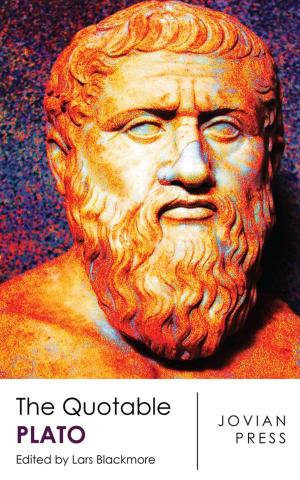| Author: | William Barry | ISBN: | 9781537809977 |
| Publisher: | Jovian Press | Publication: | January 19, 2018 |
| Imprint: | Language: | English |
| Author: | William Barry |
| ISBN: | 9781537809977 |
| Publisher: | Jovian Press |
| Publication: | January 19, 2018 |
| Imprint: | |
| Language: | English |
Alaric, King of the Western Goths, entered Rome with his army, by the Salarian Gate -- outside of which Hannibal had encamped long ago--and took the Imperial City. Eleven hundred and sixty-four years had passed since its legendary foundation under Romulus; four hundred and forty-one since the battle of Actium, which made Augustus Lord in deed, if not in name, of the Roman world. When the Gothic trump sounded at midnight, it announced that ancient history had come to an end, and that our modern time was born. St. Jerome, who in his cell at Bethlehem saw the Capitol given over to fire and flame, was justified from an historical point of view when he wrote to the noble virgin Demetrias, "Thy city, once the head of the universe, is the sepulchre of the Roman people." Even in that age of immense and growing confusion, the nations held their breath when these tidings broke upon them. Adherents of the classic religion who still survived felt in them a judgment of the gods; they charged on Christians the long sequel of calamities which had come down upon the once invincible Empire. Christians retorted that its fall was the chastisement of idolatry. And their supreme philosopher, the African Father St. Augustine, wrote his monumental work, "Of the City of God," by way of proving that there was a Divine kingdom which heathen Rome could persecute in the martyrs, but the final triumph of which it could never prevent. This magnificent conception, wrought out in a vein of prophecy, and with an eloquence which has not lost its power, furnished to succeeding times an Apocalypse no less than a justification of the Gospel. Instead of heathen Rome, it set up an ideal Christendom. But the center, the meeting-place, of old and new, was the City on the Seven Hills.
Alaric, King of the Western Goths, entered Rome with his army, by the Salarian Gate -- outside of which Hannibal had encamped long ago--and took the Imperial City. Eleven hundred and sixty-four years had passed since its legendary foundation under Romulus; four hundred and forty-one since the battle of Actium, which made Augustus Lord in deed, if not in name, of the Roman world. When the Gothic trump sounded at midnight, it announced that ancient history had come to an end, and that our modern time was born. St. Jerome, who in his cell at Bethlehem saw the Capitol given over to fire and flame, was justified from an historical point of view when he wrote to the noble virgin Demetrias, "Thy city, once the head of the universe, is the sepulchre of the Roman people." Even in that age of immense and growing confusion, the nations held their breath when these tidings broke upon them. Adherents of the classic religion who still survived felt in them a judgment of the gods; they charged on Christians the long sequel of calamities which had come down upon the once invincible Empire. Christians retorted that its fall was the chastisement of idolatry. And their supreme philosopher, the African Father St. Augustine, wrote his monumental work, "Of the City of God," by way of proving that there was a Divine kingdom which heathen Rome could persecute in the martyrs, but the final triumph of which it could never prevent. This magnificent conception, wrought out in a vein of prophecy, and with an eloquence which has not lost its power, furnished to succeeding times an Apocalypse no less than a justification of the Gospel. Instead of heathen Rome, it set up an ideal Christendom. But the center, the meeting-place, of old and new, was the City on the Seven Hills.















